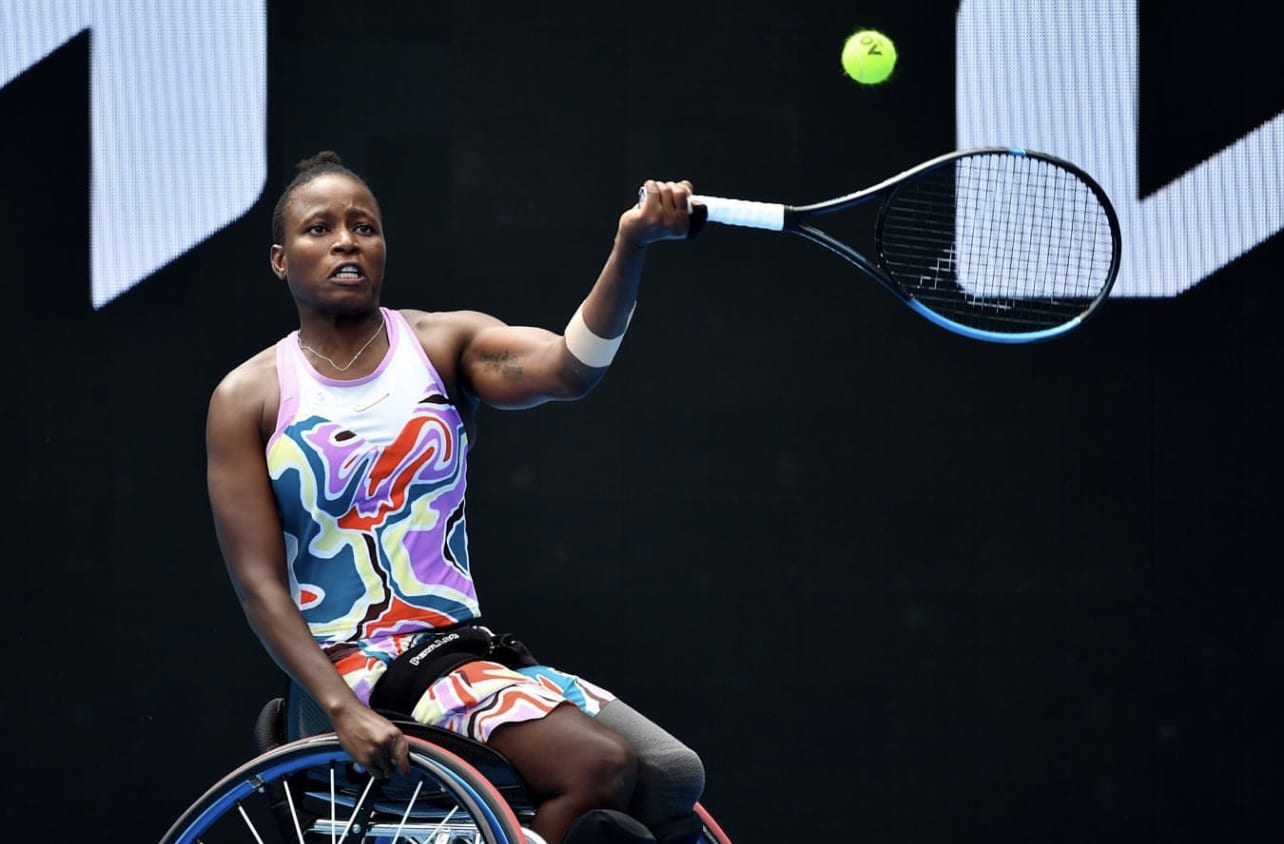A week before the 2023 French Open, South African tennis ace and paralympian Kgothatso Montjane said on radio that she wanted to top her achievements with a Grand Slam win “to validate everything”.
“And then I went out to win the Grand Slam, it was just unbelievable!” she says now, back in South Africa at the end of June as a Roland Garros women’s wheelchair doubles champion with Yui Kamiji from Japan as the two clinched an impressive 6-2, 6-3 victory over Diede de Groot and Maria Moreno.
Speaking to FORBES AFRICA soon after her win, she reminisces that this was not the career she had originally envisioned for herself.
“I picked up a racket at the age of 19 for the first time,” says the 37-year-old. “At school, I was playing quite a lot of sport. So I think that’s the reason why [with] tennis, they came directly to me. They were like ‘you’ve got to go try this’. So I was somehow forced into it.”
The Limpopo-born tennis player remembers going to university not sure about wanting to continue the sport.
Loading...
“At school, I felt like I was good at table tennis. So for me, that’s what I was looking forward to playing when I got to university, but it wasn’t there. Even wheelchair basketball, I think I would have settled for, but tennis, it was foreign to me. I have never seen it anywhere. And I just never understood this whole thing of them wanting me to play the sport.”
A few years later, she was approached to play professionally, which came with the opportunity to travel the world. At first, it seemed an attractive proposition but it was not without its challenges, especially when she had to start securing her own sponsorships.
“It was glamorous at the beginning, because there was someone taking care of everything,” Montjane explains. “We didn’t have to worry, we just had to pack our bags and go to the airport. I didn’t know the financial implications that were involved, the admin and the entering of tournaments.”
This meant that she had to learn to be business-savvy. So the young sportswoman set off to learn to draft proposals and approach sponsors across the board.
All of this is what led to Montjane’s illustrious career including being named ‘South Africa’s disabled sportswoman of the year’ three times (2005, 2011 and 2015), holding 29 singles titles and winning wheelchair tennis tournaments such as the Belgian Open and Swiss Open.
Montjane also made history as the first South African woman to win at Roland Garros since Tanya Harford’s and Rosalyn Fairbank’s victory in 1981.
“I still can’t believe it happened. When someone says ‘Grand Slam champion’, I am like ‘Nah, you are not talking to me’. It’s still to sink in,” she says. “I just want people to know that disability doesn’t mean inability. It’s just a condition that limits you in a certain way… At the end of the day, we people with disabilities – we are human, we are capable, we are talented.”
Loading...
